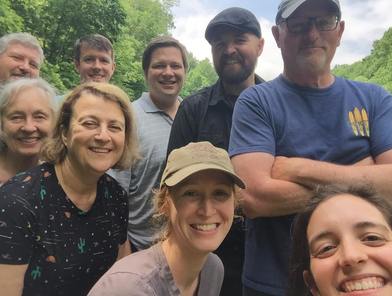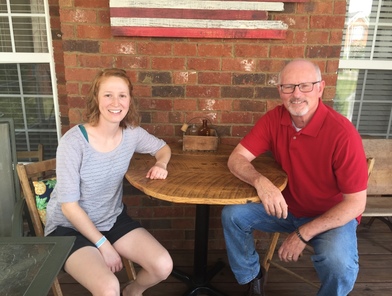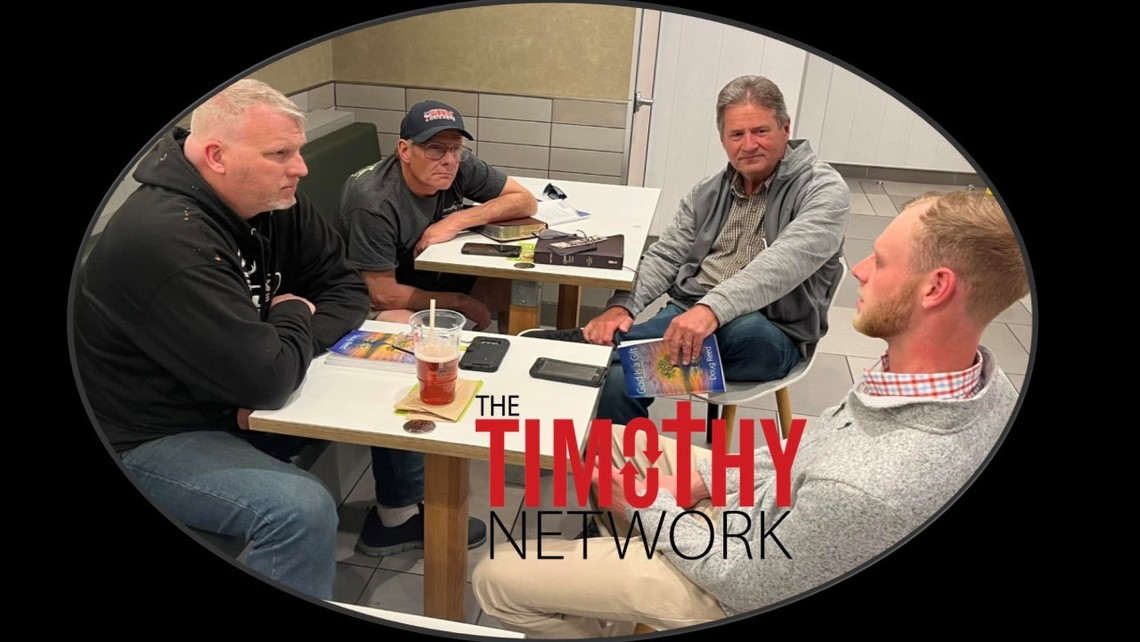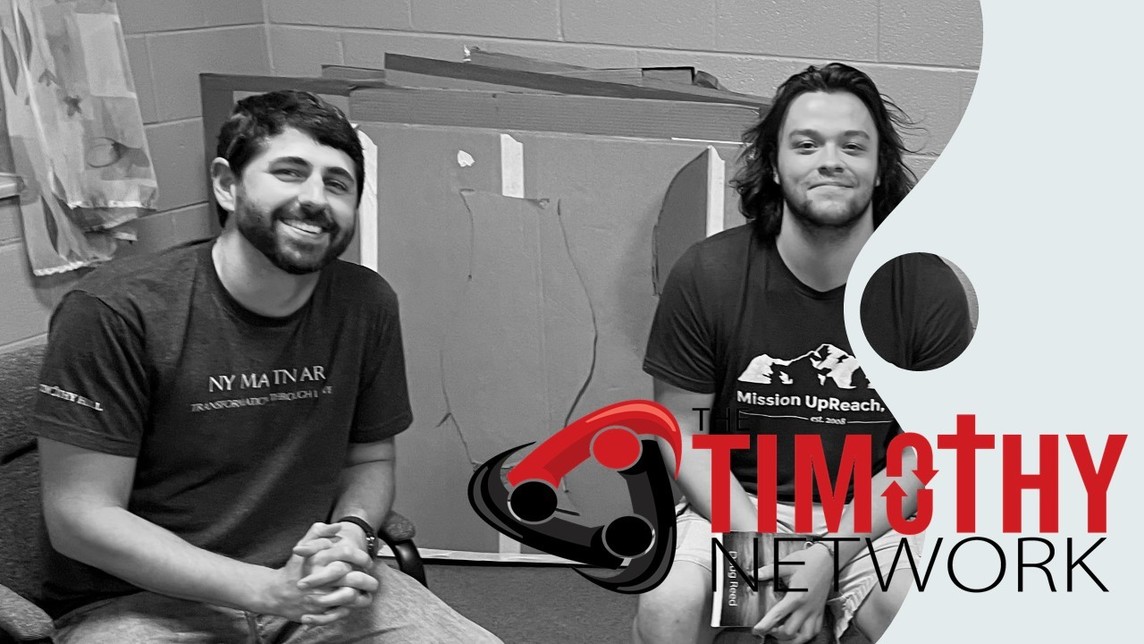
If this illustration made you think, please read on.
Overcoming a modernist mindset that favors indoctrinating crowds rather than intentionally discipling a few at a time is a steep hill to climb. It’s easy to see how we got stuck here, however.
With billions of eternal souls at stake, the economy of spending a lot of time with only a few people seems counter-intuitive.
To be fair, the New Testament is full of evidence that Jesus taught very large crowds. The “Sermon on the Mount” and the feeding and teaching of many other large gatherings are prominent examples. People flocked to Jesus in multitudes, and he seized every opportunity to preach the Kingdom of God to them.
Preaching to crowds continued after Jesus ascended to Heaven. Thousands gathered on the day of Pentecost as Peter preached a sermon that convinced 3,000 people to place faith in Christ and be baptized! Thousands more followed in the next weeks and months, indicating that public proclamation of the Word continued. The apostle Paul also preached to crowds. He went on missionary journeys to cities and towns surrounding the Aegean sea, making disciples and planting churches everywhere he went. Twenty centuries later and crowds still fill church buildings on Sundays to hear the Bible preached.
I grew up in an era when annual “gospel meetings,” (week-long events with preaching both morning and evening) were in vogue. These events were effective, and many people came to Christ as a result. Multiple thousands of souls have also been reached through public “crusades” in large stadiums and auditoriums. This was especially true in the twentieth century.
I was baptized after attending a gospel meeting, and I strongly believe in the importance of the public proclamation of the gospel – in church buildings or wherever we can draw a crowd.
God’s Word is powerful and speaks for itself! It is supernatural and “will not return to [God] empty.” (Isaiah 55:11) It is described as a “double edged sword, piercing even to the division of soul and spirit.” (Hebrews 4:12)
It need not be a matter of “either / or,” but preaching to crowds for conversion and individual disciple making are useful in different ways. Christianity in the modern era heavily focused on the former and to our detriment, in my opinion, mostly neglected the latter.
Preaching to the masses carries potential for converting large numbers of people in short order. We all like seeing this happen. It’s encouraging, exciting, and should continue. Church programming that features a classroom and lecture-style is also useful. This method has its strengths and is especially helpful in teaching factual information about the Bible, tenets of faith, and Christian living. On the other hand, focused disciple making with only a few-at-a-time is a much slower and often very “messy” and pains-taking process. Think about it as “crock pot” vs “microwave” cooking. It’s a more lengthy process, but the result is effective and gratifying.
It flies in the face of our “hurry-up-and-get’er-done” culture, but focused investment in a handful of people over a period of time is the way Jesus started a revolution of disciple making. Knowing this, doesn’t regaining traction using this method make sense?
In case we’ve not done a good job articulating it, discipling men and women and apprenticing them in this very intentional method of “life-on-life” discipleship and disciple making is exactly why Timothy Network was founded thirteen years ago. In keeping with Paul’s instructions to the young disciple Timothy (see II Timothy 2:2), it’s been our aim to make disciples who are equipped to disciple others and so on down the line. As the opening graphic illustrates working with only a few is initially much slower than addressing large crowds, but as multiplicative disciple making takes hold great things are possible! Multiplication becomes much faster than addition!
I also remain passionate about relational disciple making for a very personal reason. I’ve mentioned that I was influenced to be baptized as a result of attending a gospel meeting. I was eleven years old at the time and remain thankful to my parents and the Sunday school teachers and preachers who influenced that decision. I became a convert to Christianity on August 1, 1965. It was nineteen years later, however, that I was “discipled.” That’s when the real change and growth started. My journey eventually led to the conclusion that there were many more “church attenders” just like me, believers who lacked the life-giving power of a personal relationship with Jesus because real growth and discipleship never followed conversion.
Others commenting on the issue I’m raising have likened it to leaving newborns in the nursery – for years and years! The problem magnifies when we stop and consider this: We’ve exhorted the flock to “go and make disciples” when a great many of them have never experienced a personal discipling relationship themselves! They don’t know how. They haven’t been equipped, and they can’t pass on what they don’t have. But there’s also good news. It’s not a complicated fix! It’s not easy work, but it is a simple matter of getting started.
Pray that God will lead you to someone who is interested and teachable. Form an authentic, intentional relationship with that person and look for opportunities to begin spiritual conversations. Find a good study plan and get started. Many good resources are available. Visit our website (www.timothynetwork.org) or contact your local church for ideas. Keep in mind that every person is different and that disciple making is not a one-size-fits-all affair. That said, it’s hard to beat a straight forward study / discussion of the gospels so this might be a good place to start. The “Discovery Bible Study” is a useful tool for breaking Scripture into small chunks. Instructions for using this method can also be found on our website.
One thing can’t be over-emphasized: Discipling relationships must be genuine and trustworthy! Never “manipulate” the relationship in a way that indicates you’re more interested in making a convert than a disciple (Jesus never did that!). Prayer and reliance on the Holy Spirit are “MUST’S”! We are but vessels of God’s love. He is the Vine; we are the branches. (John 15:5) The power to transform lives rests with him, and he promised to be with us on the mission. (Matthew 28:20)
If you follow our work you’ve heard me say all this before, many times in fact! Now and then, however, I’m reminded that we need to keep saying it, and then say it some more. The mission demands focus.
Thank you, Mike Stroud
NOTE: The opening illustration was shared with me by Ray Singer. I thought it really nailed the point and hope it added to what I’ve said. It’s been a major blessing to spend a lot of “table time” discipleship with Ray over the past two years, and he’s now going on to disciple others (see photo of Tim Thomas below).


Mike discipled Tim Hooper and Ray Singer. And, Ray is now discipling Tim Thomas in Woodbury. Tim Hooper is moving to Virginia where he hopes to start a Timothy Network initiative there! Stay tuned.









Leave A Comment